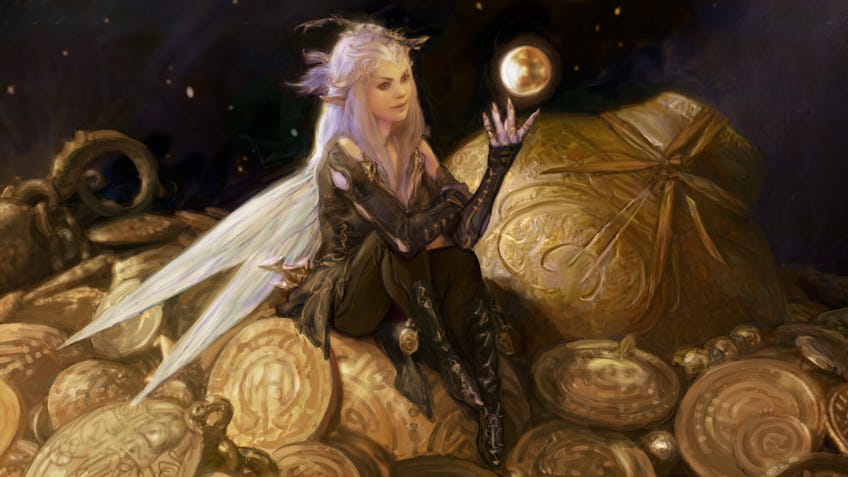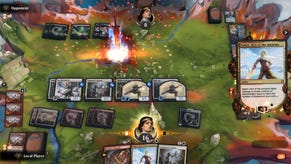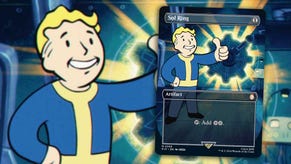Magic: The Gathering bans Unfinity’s Stickers and Attractions from three formats, gives up on partial legality.
Theme park’s closed for good.
Magic: The Gathering cards that use the sticker or Attraction mechanic from the 2022 Unfinity set have been banned in the Legacy, Vintage and Pauper formats. Publisher Wizards of the Coast outlined their reasoning in the most recent Banned and Restricted List update, citing a failed experiment on the part of partially legal sets.
The ban centres primarily on the use of “_____ Goblin” (which players colloquially call Mind Goblin for, uh… reasons) in Vintage and Legacy, necessitating all decks to also supply sticker sheets from the latest set in MTG’s line of joke-y releases that, until Unfinity, were never meant to cross streams with the TCG’s standard formats.
The use of “_____ Goblin” was apparently cumbersome but necessary in competitive decks, creating a situation where players were forced to keep a side deck of 10 unique sticker sheets for each game. The individual stickers were meant to be reusable but many players have reported the glue quickly wearing off over multiple uses, forcing Legacy and Vintage players to buy more to continue playing this single card.
Wizards went ahead and banned all cards that interact with stickers or the Attraction mechanic, leading to a combination of rejoicing from players alongside some consternation over Unfinity’s half-legal/half-not status. The set replaced the silver border that designated non-format legal cards with Acorn Stamps below the card’s rules text. The result was contentious among players, and now deemed a failed experiment by Wizards.
“The primary goal behind making some cards in Unfinity legal was that sticker cards and Attractions could be played in Commander, but there's no existing way to make a bunch of cards legal in Commander and not Legacy,” said Andrew Brown, an MTG game design architect. “We had thought the power level of those cards was low enough that if people tried them in Legacy every now and then, it'd be a fun surprise. We missed on ________ Goblin, though, and now tournament players feel obligated to interact with the sticker mechanic.”
Brown went on to say that MTG’s design teams “knew that [Unfinity’s] partial legality in Magic's broader formats was an experiment with risks” and believed that it would boost the appeal of a set series that historically underperforms, even amongst enfranchised players. MTG’s creators will reportedly not print another half-legal set “any time soon.”

Gavin Verhey released a similar announcement for the Pauper format confirming that ________ Goblin and all other Common-rarity cards that use Stickers and Attractions will likewise be banned. While not nearly as warping as its effect in Legacy and Modern, Verhey cited a “slight fracturing” between paper play and Magic Online play - the latter cannot support stickers in the same fashion as the physical TCG. The poor goblin is a problem child no matter where he appears.
The biggest shakeup for the cost-conscious Pauper format, which only uses what many collectors deem as pack chaff, is All That Glitters’ booting from legal play. The affinity-catalysing enchantment has evolved from potential issue to full-on bugbear that many players deem either a must-include in any deck that contains White mana. As a consequence, other players are building their decks to combat the omnipresent threat of All That Glitters, which is a big red flag for any format’s long term health.
Banned and Restricted announcements are an interesting peek behind the scenes of MTG’s design, especially illuminating the teams’ intent for several different formats - an aspect that is too often missing from the constant onslaught of release marketing. Experimentation is ultimately a good thing, but maintaining banlists is a necessity for any competitive format with as many players and as much history as MTG. These two facts often create uncomfortable realities.









